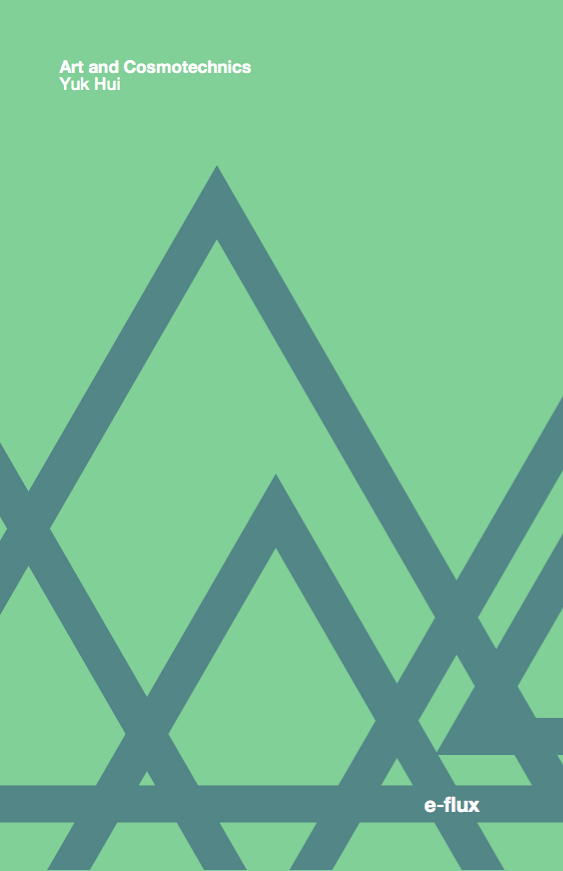Art and Cosmotechnics
Yuk Hui
In light of current discourses on AI and robotics, what do the various experiences of art contribute to the rethinking of technology today?
Art and Cosmotechnics addresses the challenge of technology to the existence of art and traditional thought, especially in light of current discourses on artificial intelligence and robotics. Thinking art and cosmotechnics together is an attempt to look into the varieties of experiences of art and to ask what these experiences might contribute to the rethinking of technology today.
Reviews
“Planetary Thinking: Philosopher Yuk Hui asks how art can transform technology”, Kunstkritikk • Anders Dunker
“Moving beyond the established premise that new technologies transform artistic practices, Hui envisions another process: transforming technology through art. As he excavates the roots of our cultural history in order to probe the future, he shows us how, in the multifarious landscape of thought, art, and technology, a deeper transformation needs to be…
“Moving beyond the established premise that new technologies transform artistic practices, Hui envisions another process: transforming technology through art. As he excavates the roots of our cultural history in order to probe the future, he shows us how, in the multifarious landscape of thought, art, and technology, a deeper transformation needs to be brought forth.”
“Technology After Hegemony”, Los Angeles Review of Books • Bryan Norton
” Art and Cosmotechnics attempts to excavate once more the speculative role the arts might play in fostering experimental modes of philosophical and scientific thought. Key to this exploration is the way artistic process, for Hui, suggests a mode of noninstrumental relation between human activity and the natural world that runs counter to…
“Art and Cosmotechnics attempts to excavate once more the speculative role the arts might play in fostering experimental modes of philosophical and scientific thought. Key to this exploration is the way artistic process, for Hui, suggests a mode of noninstrumental relation between human activity and the natural world that runs counter to prevailing narratives about technology. Rejecting the futurist idea of a triumphalist singularity achieved by advances in machine learning and artificial intelligence, Hui argues that the creative and nonutilitarian view of the world opened up by the arts makes room for an understanding of technology that cannot be reduced to forms of capitalist extraction.”
